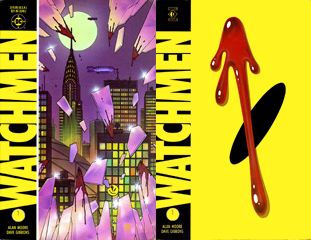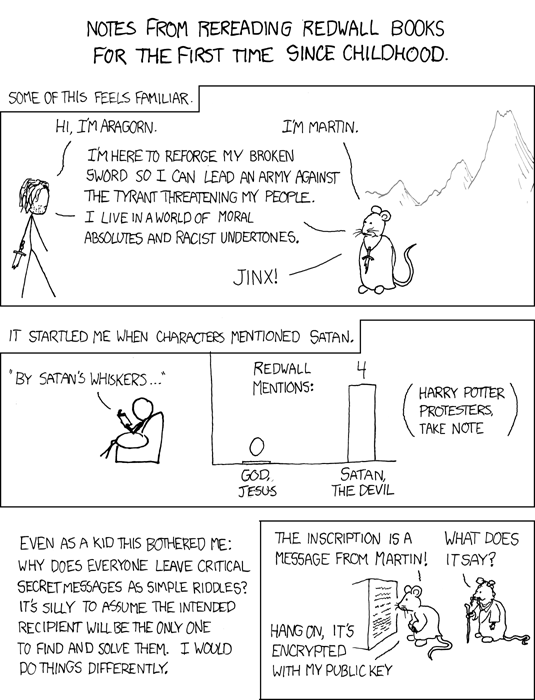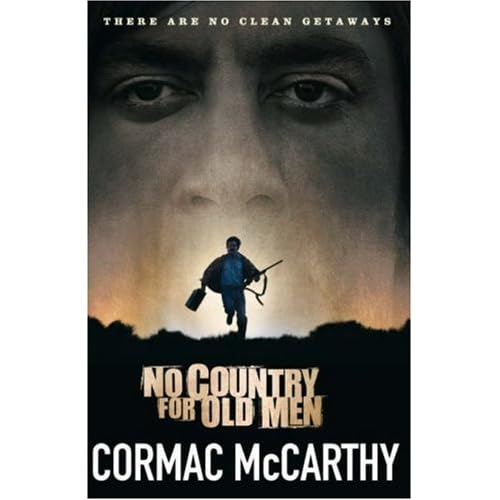 Published in 1987, Watchmen was hailed as peerless, groundbreaking and a masterwork. It has sat in the recesses of my mind as cipher to something I could never even contemplate. I'd never read it, never even seen it and yet, somehow, that image of the smiley yellow face, soiled by the blood stain was ingrained on me.
Published in 1987, Watchmen was hailed as peerless, groundbreaking and a masterwork. It has sat in the recesses of my mind as cipher to something I could never even contemplate. I'd never read it, never even seen it and yet, somehow, that image of the smiley yellow face, soiled by the blood stain was ingrained on me.It is only now as I read Alan Moore's amazing piece of work in its entirety that I begin to see what a wonderful creation it is. It has so many themes and ideas, works on so many levels, and weaves intricately between the characters and the plots, sifting through back stories of these multi-faceted, psychologically complex adventurers that I am amazed that it was conceived in a time so backward as 1987.
How could I not have read this earlier? As a child? As a teen? As a writer? This stuff is dynamite.
From Wikipedia:
Watchmen is set in 1985, in an alternative history United States where costumed adventurers are real and the country is edging closer to a nuclear war with the Soviet Union (the Doomsday Clock is at five minutes to midnight). It tells the story of a group of past and present superheroes and the events surrounding the mysterious murder of one of their own. Watchmen depicts superheroes as real people who must confront ethical and personal issues, who struggle with neuroses and failings, and who - with one notable exception - lack anything recognizable as super powers. Watchmen's deconstruction of the conventional superhero archetype, combined with its innovative adaptation of cinematic techniques and heavy use of symbolism, multi-layered dialogue, and metafiction, has influenced both comics and film.
Since it is due out next year in movie format (a scenario the writer, Alan Moore, detests the thought of - neither V for Vendetta or League of Extraordinary Gentlemen faired particularly well) I had to get my hands on it, and I insist that you do too.
Not least for the following reasons:
From XKCD:

- Watchmen isn't a world of moral absolutes. None of the characters are Superman or Spidey. Their lives don't revolve around the notion of wholly good logic and what must be done to save people. The Watchmen are driven to protect their own ideology of what is good, or patriotic, or best for the planet, or best for themselves.
- They angtsy, driven by human desires and character flaws that we've only seen in the likes of poor dark Batman (you'll have to forgive me as I'm only a pseudo-comicbook geek)
- These aren't superheroes. They wear costumes, but aside from Ozymandias and Dr Manhattan, they operate on technology and strength alone. They're vigilanties, not superheroes.
- Sub stories cross over one another, linking disparate scenes and or dialogue with each other to match or symbolise what is happening in another scene.
While by the end of the story we have the overarching theme of "Who Watches the Watchmen", particularly in its attempts to show the characters going to whatever odds to preserve peace, throughout we are struck by the sadness of losing one's place in the world, and being misunderstood because of it.

It is also interesting to think of how very special this piece of work is and how lucky we are that Moore has so brilliantly devised his plot, especially considering what it has given us as off shoots (just as George Lucas gave us so much when he created Star Wars). However, there is a flipside... there are so many novels and comic strips, and movies, and songs, that are so derivative of that standard formula that Watchmen has eschewed. These derivatives, created after the likes of Watchmen and Star Wars still leak out into the ether as if wonderous and complex creations such as Watchmen never existed and never raised new questions about character and plot creation and moral issues.
I am set in my mind now to write a young adult novel that is as morally ambiguous as Watchmen, that isn't oh-so Harry Potter in its appeal, and that changes allegiances between books from one side to the other... because life is complicated and it isn't all cut and dried. And most importantly, people lie to protect themselves and their ideologies. So few of us our good, moral people. We always let slip, don't we, just to make our own lives easier.
I think it's time we had a YA novel that reflected that.
Here's hoping I can pull it off.


